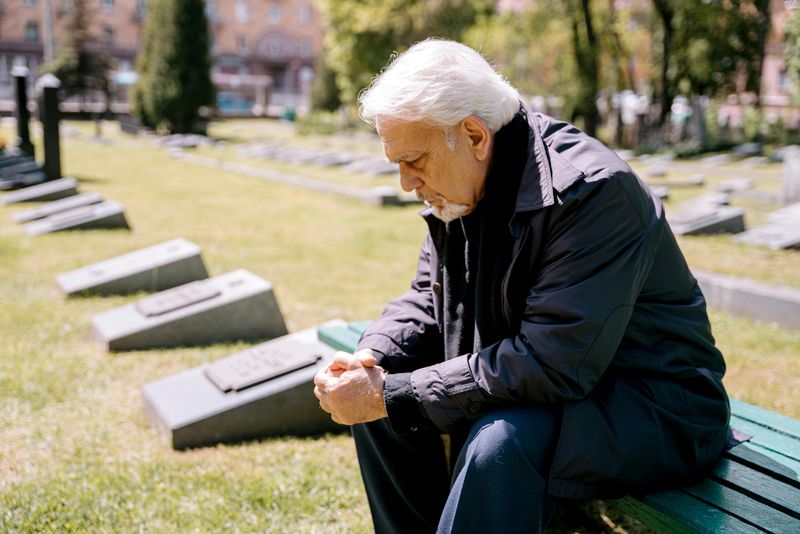13 Silent Battles Men Fight as They Get Older

Getting older isn’t just about gray hair and creaky joints. For many men, aging brings a hidden battlefield of emotions and challenges they rarely talk about. These silent struggles shape how men view themselves and their place in the world as time passes. Understanding these battles can help both men and those who care about them navigate the complex journey of getting older.
1. The Body Betrayal

Morning aches replace what used to be boundless energy. The body that once climbed mountains, ran marathons, or simply made it through workdays without pain now sends daily reminders of its limitations.
Many men feel blindsided by this physical decline, having built identities around strength and physical capability. The mirror reflects someone they barely recognize.
Coming to terms with these changes requires a mental shift – learning to value what the body can still do rather than mourning what’s been lost. Finding new ways to stay active that respect these new limitations becomes crucial.
2. Career Ceiling Reality

What once felt like a guaranteed climb to the top can start to feel uncertain by mid-life. The corner office you pictured in your thirties might seem less attainable as time moves on.
For men who’ve defined themselves through work achievements, this realization cuts deep. Watching younger colleagues zoom past while feeling increasingly invisible creates a quiet crisis of purpose.
Navigating this battle means finding value beyond job titles and paychecks. Many men discover that mentoring others or finding meaning in different aspects of work brings unexpected satisfaction that ambitious climbing never provided.
3. Fading Relevance Fear

As music, technology, and slang evolve quickly, the cultural markers that once anchored men begin to fade, making many feel like outsiders in their own time.
This disconnect runs deeper than just not understanding TikTok trends. It represents a growing sense that society is moving forward while leaving them behind.
Fighting this battle means striking a balance – staying curious about new developments without feeling pressured to adopt everything new. The wisest men learn to embrace change selectively while confidently owning their own era’s contributions.
4. Friendship Drought

Male friendships often thin out with age. The buddy network that once seemed unshakable gradually disappears under the weight of family responsibilities, relocations, and changing interests.
Research consistently shows that men have fewer close friends as they age. What starts as missed beer nights becomes years without meaningful male connection.
Combating this isolation requires intentional effort. Men who successfully navigate this challenge actively maintain old friendships while remaining open to new ones, recognizing that social connections directly impact mental and physical health.
5. Health Anxiety Spiral

Every unexplained pain becomes a potential warning sign as men age. A twinge that would have been ignored in youth now triggers thoughts of serious illness.
This health hypervigilance often coincides with witnessing peers face serious diagnoses. Suddenly, mortality feels less theoretical and more like a looming presence.
Balancing reasonable health awareness without falling into anxiety requires mental discipline. Successful aging means addressing genuine concerns through regular check-ups while not allowing health worries to dominate daily thoughts.
6. Financial Countdown Pressure

After a certain age, retirement calculations become impossible to ignore. The time left to secure your finances shortens, even as responsibilities tend to increase.
This creates a unique pressure – balancing present needs against future security with a timeline that no longer feels infinite. For many men, providing has been central to their identity.
Working through this challenge means honest financial assessment and sometimes difficult choices. Men who navigate this successfully learn to separate their worth from their wealth, finding ways to prepare for the future without sacrificing today’s quality of life.
7. Legacy Questions

Reaching middle age often prompts men to consider their significance and contributions, questioning whether their actions have truly mattered.
This isn’t just about famous achievements. It’s about whether they’ve been good fathers, reliable friends, or contributors to something larger than themselves.
Facing this battle productively means reflecting honestly on values and priorities. Many men find peace by redefining success away from external achievements toward relationships built and lives touched – focusing on depth of impact rather than breadth.
8. Relationship Evolution Struggle

Long-term relationships transform over decades. The passionate romance that once defined a marriage often evolves into something different that requires redefinition.
Many men struggle with this shift, unsure how to maintain connection when familiar patterns change. Children leaving home often reveals relationship gaps that were previously masked by parenting responsibilities.
Couples who navigate this successfully learn to rediscover each other as individuals who have both changed over time. This means developing new shared interests and communication patterns that honor the relationship’s history while creating space for its future.
9. Identity Reconstruction

For many men, retirement means letting go of the identity tied to their career. The question “What do you do?” no longer has a straightforward answer.
This transition hits particularly hard for men who’ve deeply connected their worth to professional accomplishments. The freedom of retirement can paradoxically feel like floating without direction.
Successfully navigating this challenge means exploring interests beyond work before retirement arrives. Men who thrive develop identities built around character, relationships, and pursuits that don’t require a paycheck – creating purpose that outlasts careers.
10. Technology Acceleration Gap

What feels state-of-the-art today can become obsolete tomorrow, leaving older men struggling to keep pace with rapidly changing digital tools.
This gap is more than inconvenient – it can affect employment opportunities, social connections, and even basic tasks as services move increasingly online. The frustration of constantly learning new systems wears on even tech-savvy individuals.
Addressing this challenge requires selective adaptation rather than wholesale surrender or resistance. Successful navigation means identifying which technologies truly matter for one’s specific needs and focusing learning efforts there.
11. Changing Social Status

Over time, older men may feel increasingly invisible as societal and professional recognition shifts toward the younger generation.
This transition can be jarring for men accustomed to having their opinions valued and their presence acknowledged. Cultural messaging frequently reinforces the notion that relevance belongs to youth.
Men who handle this battle well find confidence from within rather than external validation. They develop the wisdom to speak when it matters, listen when it helps, and recognize that influence takes different forms across life stages.
12. Regret Management

Roads not taken loom larger with passing years. Career paths abandoned, relationships ended, and opportunities missed all resurface for review as life’s timeline extends behind more than ahead.
These thoughts can spiral into unproductive regret if left unchecked. The weight of past decisions becomes heavier when the runway for new beginnings shortens.
Confronting this battle requires acceptance and perspective – acknowledging choices made with the information available at the time rather than through hindsight’s perfect lens. Men who find peace learn to extract wisdom from past decisions without letting regret consume present joy.
13. Vulnerability Resistance

Despite the clear need, many men resist seeking help when health challenges and life changes make them vulnerable.
This resistance stems from lifelong conditioning that equates needing assistance with weakness. The man who prides himself on self-sufficiency finds it particularly difficult to accept support from partners, children, or healthcare providers.
Overcoming this battle means redefining strength to include knowing when to accept help. Men who navigate aging successfully learn that interdependence rather than independence becomes the healthier goal – recognizing that allowing others to support them actually strengthens relationships.

Comments
Loading…